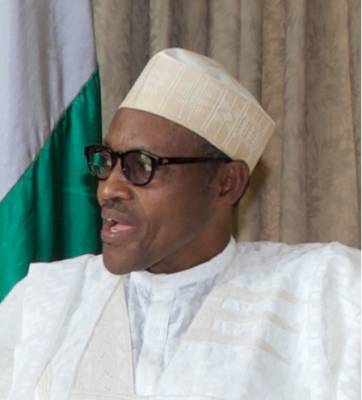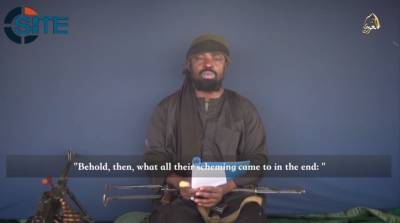Delayed Elections in Nigeria and the Challenge of Boko Haram

The Western powers, many of which concerned with the threat of Boko Haram, are watching the path towards the Nigerian federal elections very closely. The U.S. and Britain both expressed dismay with the February 9 decision by President Goodluck Jonathan and his ruling Peoples' Democratic Party to delay the scheduled election from February 14 to March 28.
The Nigerian Independent National Election Commission (INEC) claimed that the elections needed to be delayed because the military could not provide adequate security during the voting. Mohammadu Buhari, Jonathan's challenger from the All Progressives Congress Party, related that he believed that this was a ploy by President Jonathan to buy time to garner more votes in order to beat him. Recent polls between Buhari and Jonathan are evenly split around 42% of the popular vote.
Following the 800 deaths amid the 2011 Nigerian presidential election, observers are worried that 2015 portends a repetition of this violence, especially given the tightness of the election. The Nigerian populace is tired of the corruption embodied by President Jonathan's regime. They are also fed up with the federal government's inability to neutralize the terrorist organization, Boko Haram, which claims to control a large swathe of territory in northeast Nigeria. The group has proclaimed this area to be a Shariah-ruled like those of Islamic State (IS)-controlled areas in Syria and Iraq.
 Mohammadu Buhari is an interesting alternative to Jonathan. For one, Buhari is a Muslim, whereas Jonathan is Christian. Also, Buhari is an ex-military dictator, having seized power during a coup in 1980. Although Buhari was criticized for some perceived draconian measures during his brief rule in the 1980s, he had a reputation as being down-to-earth as well as a relatively honest and selfless leader. He cracked down on civil servants who were involved in embezzlement and not working their full hours and managed to command the respect of the military (not surprising, as he rose from their ranks).
Mohammadu Buhari is an interesting alternative to Jonathan. For one, Buhari is a Muslim, whereas Jonathan is Christian. Also, Buhari is an ex-military dictator, having seized power during a coup in 1980. Although Buhari was criticized for some perceived draconian measures during his brief rule in the 1980s, he had a reputation as being down-to-earth as well as a relatively honest and selfless leader. He cracked down on civil servants who were involved in embezzlement and not working their full hours and managed to command the respect of the military (not surprising, as he rose from their ranks).
President Jonathan has done an abysmal job in confronting Boko Haram, as the terrorist organization has grown and come to control significantly more territory in northeast Nigeria in recent years. Mr. Buhari, however, may be a breath of fresh air for Nigeria. Where Mr. Jonathan's national military forces very often evacuate outposts and towns when they receive notice of the pending arrival of Boko Haram warriors, Mr. Buhari will most certainly garner more respect from the Nigerian armed forces and will be a more disciplined leader of the Nigerian Armed Forces. Additionally, the fact that Mr. Buhari is a Muslim will certainly make his voice resonate more powerfully in Nigeria's Muslim states to the north of the country.
If this move by President Jonathan does indeed lead to a new cycle of party on party violence, then the country as a whole will likely suffer. The threat posed by Boko Haram in the north warrants the Nigerian government's full attention. Unnecessary turmoil caused by a waning regime will only harm the nation as Boko Haram will be afforded significant leeway for operational activities in its wake.
 To that point, Boko Haram released a video yesterday showing its leader, Abu Bakr Shekau, threatening the security of Nigeria’s coming elections. He stated, “…these elections that you are planning to do, will not happen in peace, even if that costs us our lives.”
To that point, Boko Haram released a video yesterday showing its leader, Abu Bakr Shekau, threatening the security of Nigeria’s coming elections. He stated, “…these elections that you are planning to do, will not happen in peace, even if that costs us our lives.”
The fact that Cameroon and Chad's Armies have now engaged Boko Haram head-on delineates the security risk that the Sunni terrorist organization and its northeast Nigerian safe haven pose to the overall region. When an insurgent movement expands its military activities beyond traditional borders, it usually means it has become stronger and more confident. This makes the Boko Haram problem a regional security threat now and not simply a Nigerian issue. Nigerian electoral shenanigans will certainly not assist the Nigerian population and their neighbors in containing Boko Haram's offensive capabilities.
